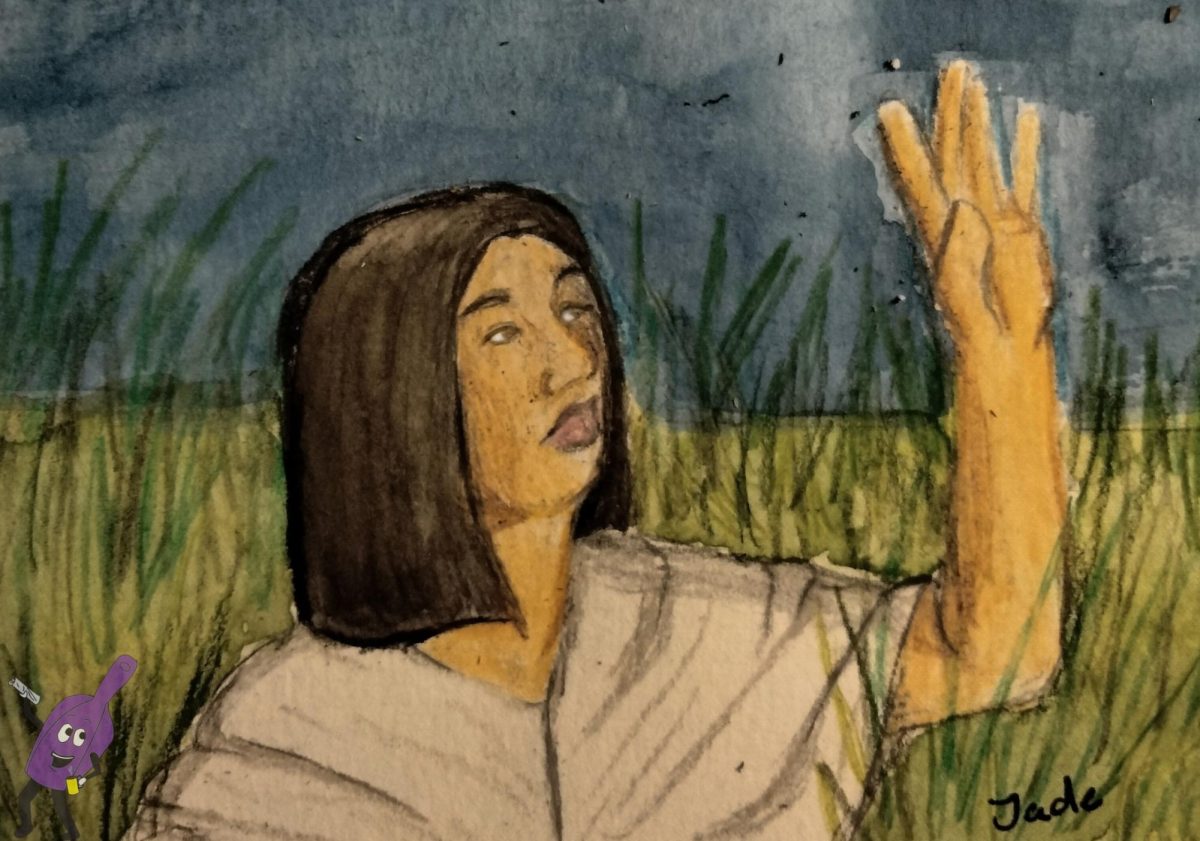The previous article explored Mitski’s early career and her first three studio albums. She released her first two albums while in college. Lush, and Retired in Sad, New Career in Business, share a young Mitski’s point of view. Post-graduation, Mitski enters a new era of her life, her music following suit. Bury Me at Makeout Creek begins to delve into her emotions as she adjusts to a fully independent life.
Mitski’s fourth album, Puberty 2, was released in 2016 under her newly signed label Dead Oceans. The album is one that truly grasps your heart as it explores powerful emotions so strong they would seem to appear only in puberty. She takes us on a journey through codependency, longing, heartbreak, depression, and determination.
“Once More to See You” takes the longing Mitski feels in a relationship kept secret. She is okay with keeping the relationship theirs alone but needs her partner with her to feel content. “If you would let me give you pinky promise kisses/ Then I wouldn’t have to scream your name/ Atop of every roof in the city of my heart”.
Another song in the album, “Fireworks” takes a look at depression, and finding feeling in the numbness acquired through pain. She speaks of how the “sadness will fossilize”, “And when I find that a knife’s sticking out of my side/ I’ll pull it out without questioning why”. She learns to exist above her overwhelming emotions, but there are still reminders of emotion that reveal her. “And then one warm summer night, I’ll hear fireworks outside/ And I’ll listen to the memories as they cry, cry, cry”.
One of the songs on Puberty 2 that hits the hardest is “Your Best American Girl”. The song focuses on the experience of falling in love as a woman of color. Mitski is biracial, Japanese, and white, and finds herself struggling to feel desirable to a typical American guy. She relays the dynamic between herself and the love interest, and the value of him versus herself. “You’re the sun, you’ve never seen the night”. “ Well I’m not the moon, I’m not even a star”. With a beautiful metaphor, Mitski describes the feeling of separation – a celestial being and an ordinary Mitski. The listener is immersed in the longing of Mitski as the chorus sings, “You’re an all-American boy/ I guess I couldn’t help trying to be your best American girl” She wants to be the idealized white all-American girl, but this isn’t something she can ever achieve. Any girl can relate to this idea of fighting to love yourself even if the world tells you you are unworthy. The impact is brought further by the social commentary on race in American relationships. The unique experience of feeling like an outsider in one’s relationships is something many women of color can relate to, and it makes this song so incredibly impactful.
In 2015 Mitski released Be the Cowboy, her fifth studio album. This album carries a lonely impression. The song “Me and My Husband” tells the story of a housewife in an unhappy marriage. She is not in love with this man and finds herself as “the idiot with a painted face” but she comes to terms with this as her life. She decides to put her all into being a wife because he is the most permanent thing she has. “So I bet all I have on that/ Furrowed brow/ And at least in this lifetime/ We’re sticking together”.
The album’s most popular track, “Washing Machine Heart”, tells of Mitski clinging to an unhealthy relationship. “Toss your dirty shoes in my washing machine heart/ Baby, bang it up inside”. She knows her lover is damaging to her and will break her heart in the long run, but she loves him and wants to give her all. She offers her love knowing she doesn’t mean the same to him. “Baby, though I’ve closed my eyes/ I know who you pretend I am”. Mitski shares the “Lonesome Love” – another song title – she finds herself in throughout the album.
A song that stands out on this album is “Pearl”, a story of someone trapped in the harmful patterns of a toxic relationship. She has been in love with a “war” or traumatic relationship and now that she is receiving love she rejects it. “You’re growing tired of me/ You love me so hard and I still can’t sleep”. Mitski shares this ache that the only thing that can provide comfort is the thing that hurt her. “There’s a hole that you fill/ You fill, you fill”, but this hole is what was put there by the pain of the relationship. Mitski is trapped in a pattern of returning to unhealthy relationships because that pain is what is comfortable. “And it left a pearl in my head/ And I roll it around/ Every night, just to watch it glow”. She accepts toxicity and it creates a pearl: the beauty or perhaps the trauma bond between her lover and herself.
After Be The Cowboy, Mitski went on a hiatus, ending in 2022 with her sixth album Laurel Hell. Mitski’s Laurel Hell feels much more mature in the articulation of emotion. The album focuses on the changes and stagnance of life side by side and carries with it the tension Mitski felt in her career at the time.
The song “Working for the Knife” is filled with her feelings of entrapment in her career. She opens the song with “I cry at the start of every movie/ I guess ’cause I wish I was making things, too/ But I’m working for the knife”. Mitski wants to make art that is genuine and not for anyone else. She followed her dream but is still stuck working for money and to make others happy. “I always thought the choice was mine/ And I was right, but I just chose wrong”. The album covers her moving on from her feelings in the past albums.
The short track, “I Guess” tells the story of a breakup and Mitski realizing it is time for her to find herself. She finds gratitude in the loneliness and turns a new page in her life.
My favorite song from this album is “That’s Our Lamp”. The song is incredibly bittersweet as it shares the reminiscing of falling in love one feels at the end of a relationship. In the song, Mitski is on a walk after a fight with her partner, but looking into the window of their apartment, she says “That’s our lamp, it shines like a big moon/ We may be ending, I’m standing in the dark/ Looking up into our room, where you’ll be waiting for me”. The lamp symbolizes the love they had as it lights up the room in which they fell in love. “Thinking that’s where you loved me/ That’s where you loved me”
Mitski’s most recent album, released in September of this year, is titled The Land is Inhospitable and So Are We. This album is full of Mitski’s introspection and her analysis of her feelings in tandem with the universe. The songs take her emotions and places them in another subject.
In the popular track “My Love, Mine All Mine” Mitski sings about putting her love, the one thing that belongs to her, into the moon that shines forever. “Nothing in the world belongs to me/ But my love, mine, all mine, all mine”. Something beautiful about The Land… is how it speaks about love.
The song “Heaven” is about cherishing your love. “As I sip on the rest of the coffee you left/ A kiss left of you/ Heaven”. Most of Mitski’s songs about love are much more self-destructive, such as “I’m Your Man”. This song is about being so devoted to someone you lose yourself, “So, when you leave me, I should die/ I deserve it, don’t I?”. This makes “Heaven” a much more beautiful song given the positivity of it.
The song “Star” is reminiscent of “That’s Our Lamp” from the previous album, given the theme of recalling a lost love in a positive light. She compares the love she shared with someone to a star, and how even if the love no longer burns, just like a dead star it still shines. “We just see it shinin’/ We’ve travеled very far”. There is a phrase “love is never wasted” and I feel this song reflects that. The final lyric makes me feel emotional. “Keep a leftovеr light/ Burnin’ so you can keep lookin’ up/ Isn’t that worth holdin’ on?”
Mitski is an incredibly talented lyricist, and her songs could be analyzed endlessly. An aspect of her music that I admire is how each song has many interpretations. Throughout her career, she has failed to disappoint. She articulates emotion on an untouchable level, and I haven’t even touched on the technical expertise Mitski has. She is truly a genius of our time.





